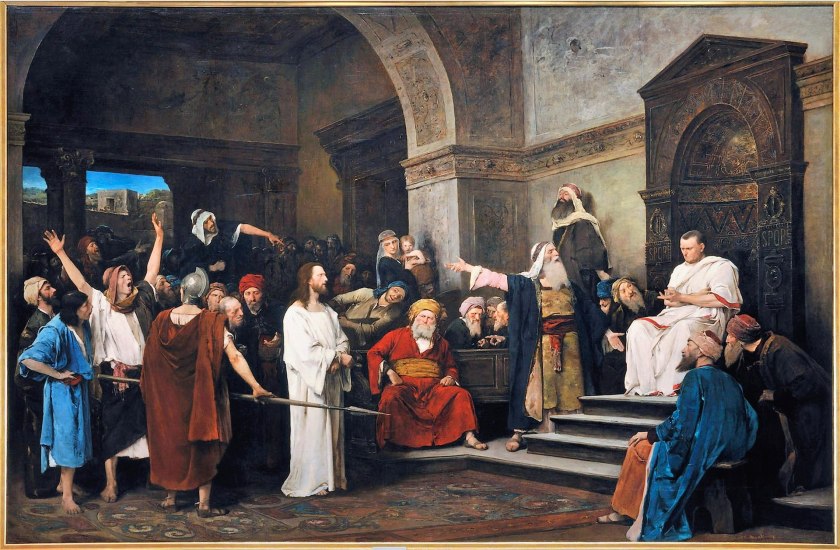
Τίνος ἕνεκεν ὁ Χριστὸς οὔτε τῷ ἀρχιερεῖ προσαχθεὶς οὔτε τῷ ἡγεμόνι ἄξιόν τι σοφοῦ καὶ θείου ἀνδρὸς ἐφθέγξατο δυνάμενον καὶ τὸν κριτὴν καὶ τοὺς παρεστῶτας παιδεύσαι καὶ βελτίους ἐργάσασθαι, ἀλλ’ ἠνέσχετο καλάμῳ τύπτεσθαι καὶ περιπτύεσθαι καὶ στεφανοῦσθαι ἀκάνθαις, καὶ μὴ καθάπερ Ἀπολλώνιος μετὰ παρρησίας τῷ αὐτοκράτορι λαλήσας Δομετιανῷ τῆς βασιλικῆς αὐλῆς ἀφανὴς ἐγένετο, καὶ μεθ’ ὥρας οὐ πολλὰς ἐν πόλει Δικαιαρχίᾳ, νῦν δὲ Ποτιόλοις καλουμένῃ, ὤφθη ἐπιφανέστατος; ὁ δέ γε Χριστὸς εἰ καὶ παθεῖν εἶχε κατ’ ἐντολὰς τοῦ Θεοῦ, ἐχρῆν μὲν ὑπομεῖναι τὴν τιμωρίαν, οὐ μὴν ἄνευ παρρησίας ὑποστῆναι τὸ πάθος, ἀλλὰ σπουδαῖά τινα καὶ σοφὰ διαφθέγξασθαι πρὸς Πιλᾶτον τὸν δικαστήν, καὶ μὴ ὡς εἷς τῶν ἐκ τριόδου χυδαίων ὑβρισθῆναι.
(Porphyrius, Adv. Christ. fr. 63 = Macarius Magnes, Apocr. 3.1)
When brought before the high priest and Roman governor, why didn’t Jesus say anything to suggest he was wise or divine? He could have taught his judge and his accusers how to become better men! But, no: he only manages to be whipped and spit on and crowned with briars—unlike Apollonius who talked back to the emperor Domitian, vanished from the palace and soon was to be seen by many in the city of Dicearchia, now called Puteoli. And even if Christ’s suffering was carried out according to God’s plan, even if he was meant to suffer punishment—at least he might have faced his suffering nobly and spoken words of power and wisdom to Pilate, his judge, instead of being made fun of like a peasant boy in the big city. (tr. Raymond Joseph Hoffmann)
